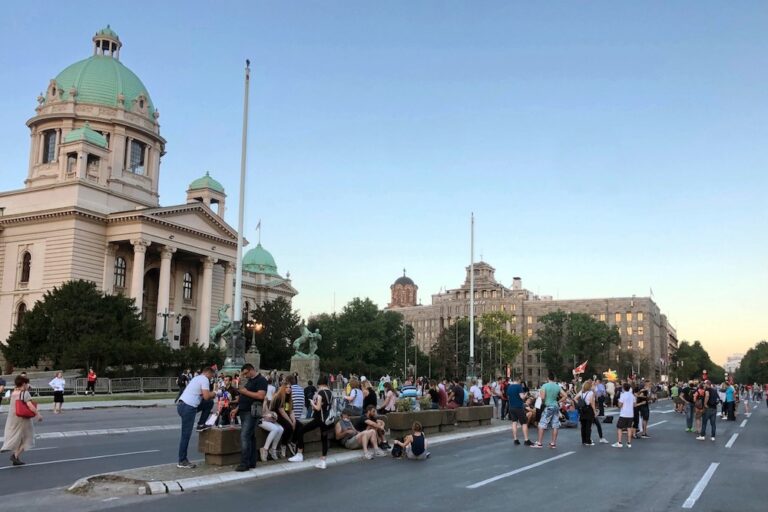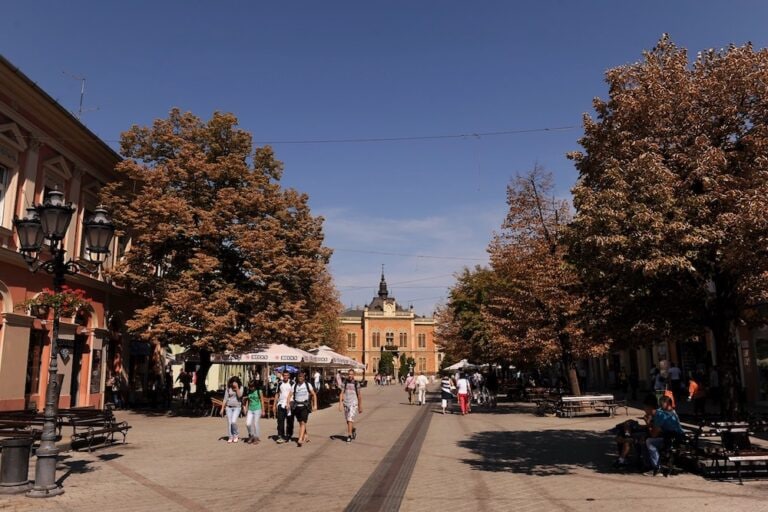(WiPC/IFEX) – Flora Brovina, the poet, paediatrician and womenâs rights activist detained since April 1999 and sentenced to twelve years in prison, arrived home in Kosovo yesterday evening to a welcome by hundreds of well-wishers. She had been released on order of Yugoslav President Kostunica. Arrested in April 1999, she was transferred to Serbia in […]
(WiPC/IFEX) – Flora Brovina, the poet, paediatrician and womenâs rights activist detained since April 1999 and sentenced to twelve years in prison, arrived home in Kosovo yesterday evening to a welcome by hundreds of well-wishers. She had been released on order of Yugoslav President Kostunica.
Arrested in April 1999, she was transferred to Serbia in June, alongside around 1,000 other Kosovan prisoners, by Yugoslav troops as they withdrew from Kosovo. In December, Brovina was sentenced to twelve years in prison on charges of alleged links with the Kosovo Liberation Army. International PEN and other human rights organisations protested the conviction, pointing out that there was no evidence to show that Brovina had been involved in violence, and that she was being held only for her public protests against Serb human rights abuses in Kosovo. Even the Supreme Court questioned the veracity of the charges used to convict Brovina and in June 2000 ordered that the case be returned to the Nis District Court for review, recommending that Brovina be released on bail. However, while the Nis District Court agreed to review the case, it refused to allow Brovina her freedom. The re-trial started in September with the next hearing scheduled for 14 November.
A sustained campaign against Brovinaâs imprisonment, led by International PEN and other international and national human rights groups, had placed her case high on the agenda of incoming President Kostunicaâs, himself a member of International PEN. Within days of taking office, he indicated that he would order the release of Brovina. The release was hampered, however, by the refusal of the minister of justice to accede to the amnesty. Finally, on 1 November, President Kostunicaâs legal advisor personally delivered the order to the Pozorevac Prison that Brovina be freed.
Brovina had stated from prison in October that she would not accept freedom for herself unless all the several hundred other ethnic Albanian prisoners who were still held in Serb prisons were freed. The new Yugoslav leader has been under pressure to order an amnesty, and a motion is due to be put to the Serbian parliament shortly to enable their release. Yesterday, Brovina told the press that she had been assured that all the remaining Kosovo Albanian prisoners would be freed by the end of November.
International PEN applauds the amnesty granted to Brovina as a symbol of its commitment to end the pattern of arrest and persecution of those who speak out that prevailed under the previous regime. It further welcomes measures being put in place towards securing the release of all Kosovo Albanians held in Serbia.
The WiPC office in London recommends the BBC World Service Web site report on Brovinaâs release which includes a televised report from BBC Correspondent Kate Adler, providing video footage of Brovinaâs return to Kosovo. It shows moving scenes of hundreds of well-wishers, and comments by Brovina and David Kouchner, head of the UN mission in Kosovo.


